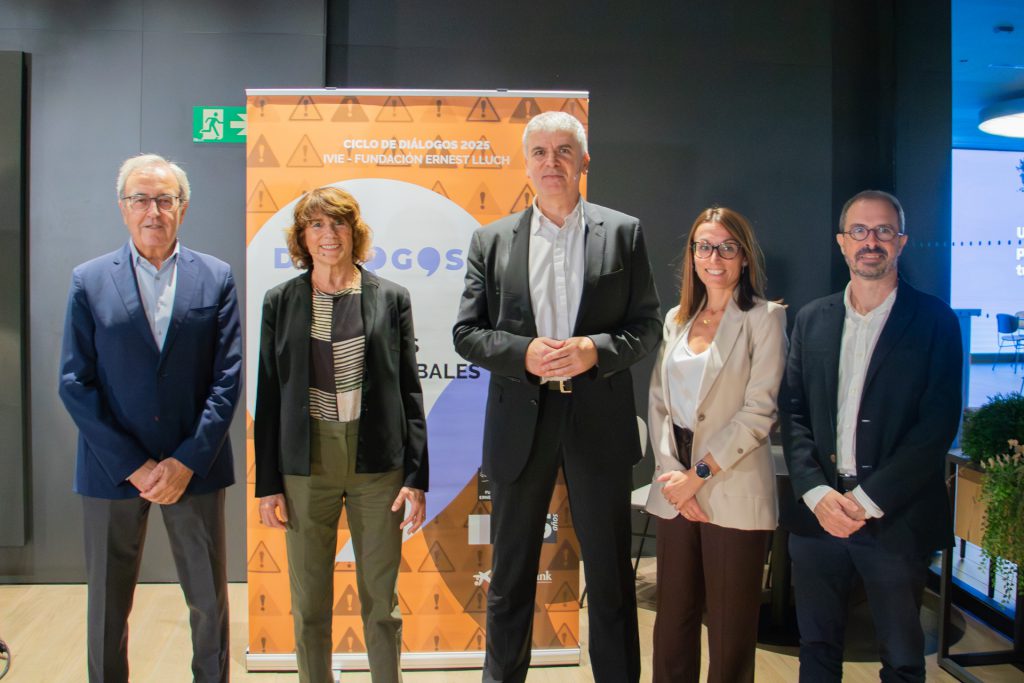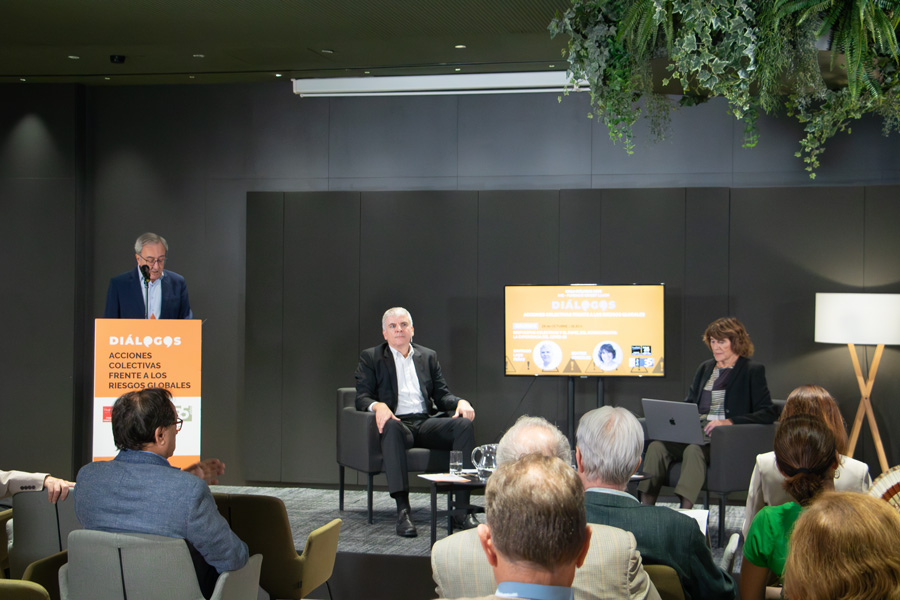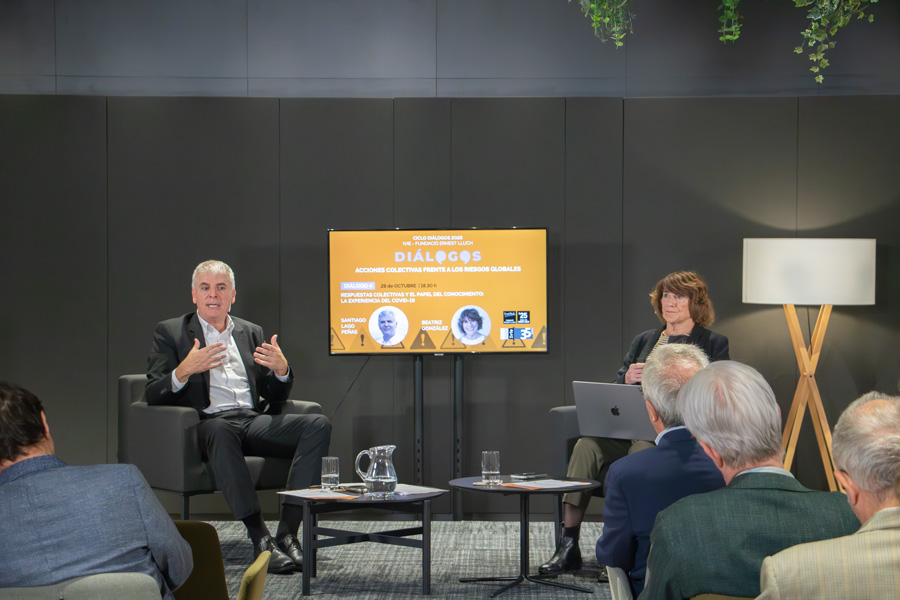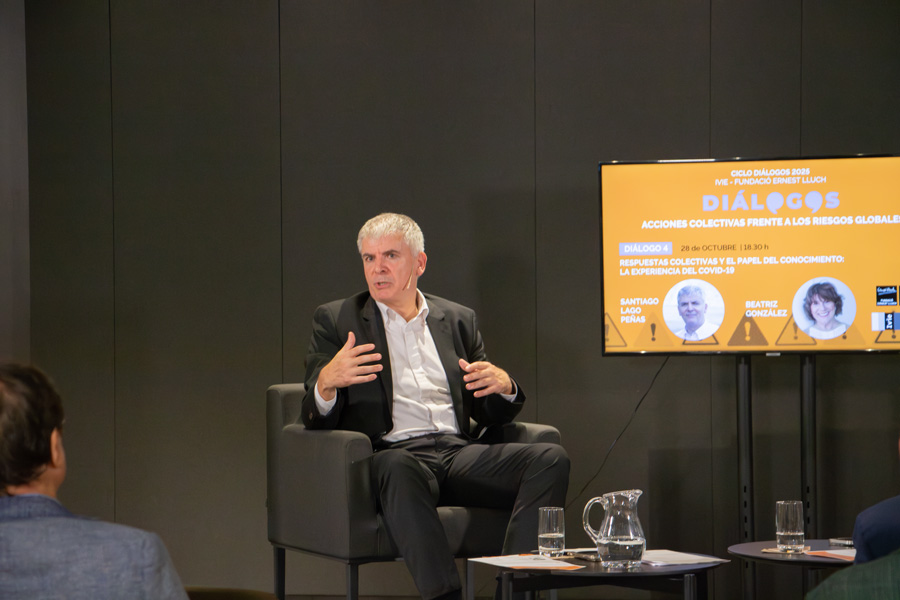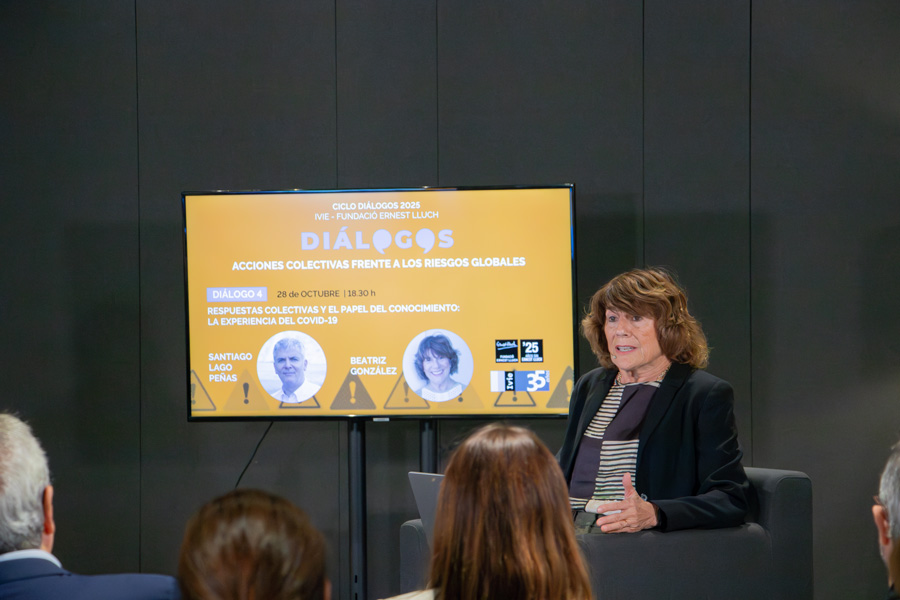Esta web utiliza cookies para que podamos ofrecerte la mejor experiencia de usuario posible. La información de las cookies se almacena en tu navegador y realiza funciones tales como reconocerte cuando vuelves a nuestra web o ayudar a nuestro equipo a comprender qué secciones de la web encuentras más interesantes y útiles.
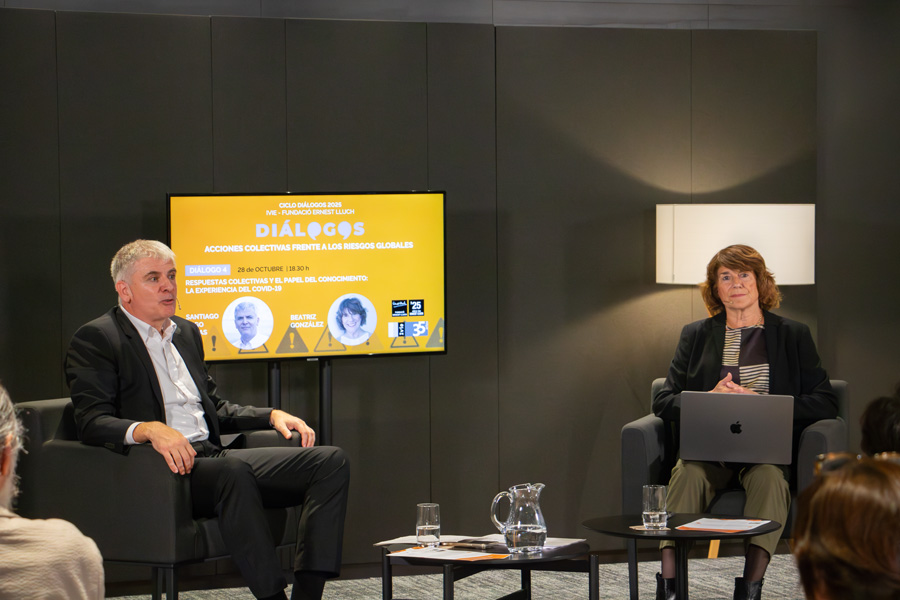
Economists Warn Spain Has Not Learned COVID-19 Lessons to Prepare for Future Crises Like the DANA
The dialogue series organized by the Ernest Lluch Foundation and Ivie in Valencia continued yesterday with a debate between economists Santiago Lago and Beatriz González
The pandemic taught us important lessons that go far beyond health, yet these are not being applied to anticipate and better prepare for possible future crises. This thought was emphasized by economists Santiago Lago and Beatriz González in the dialogue held in Valencia, as part of the series Collective Actions for Global Challenges organized by the Ernest Lluch Foundation and Ivie.
Beatriz González, Professor at the University of Las Palmas de Gran Canaria and expert in health economics, recalled that during the COVID-19 crisis, science advanced at an unprecedented pace, thanks in part to data sharing and open science. At the national level, progress was also made in healthcare organization. “Hospitals managed to make their management more flexible, putting egos aside to improve efficiency. This was not so easy for primary care centers, due to their limited autonomy, as orders came from the top down,” she explained.
For his part, Santiago Labo, Professor at the University of Santiago de Compostela, stressed that the economic response had also been effective. “Europe acted quickly—unlike on most occasions—and took decisive measures such as joint debt issuance, bond purchases, and the suspension of fiscal rules, which saved the economy.” In Spain, loans guaranteed by the Government’s state-owned development bank (ICO) and temporary layoff measures (ERTEs, similar to furlough schemes) were also essential, he added.
However, despite this positive assessment of the pandemic response, both experts agreed that the experience had not been used to be better prepared for future global crises. Collaboration and coordination between administrations is necessary to propose solutions, but “the current political confrontation does not help and also generates mistrust among citizens,” said Lago. González insisted on the need for a joint strategy, but noted that conflicts of interest often block solutions. She called for the final approval of the draft royal decree on emergencies, arguing that “we need better regulation than we had during the pandemic to enable coordinated action in future crises”.
Lago proposed creating regional risk maps to prepare for specific threats in each area. “We are a decentralized country, and that should allow us to plan targeted preventive actions to respond quickly and effectively, because each region has its own risks and particularities. Each extraordinary event requires tailored preparation; each case must be evaluated and planned out.” However, he warned that “this approach is not being taken. In Galicia, we are no better prepared for an oil spill than we were 25 years ago, and I don’t know if Valencia is prepared for another flood,” he concluded.
Turning to Spanish healthcare, González added a note of optimism, highlighting progress in digitization. “Giant strides have been made in creating a robust healthcare information system, achieved through a cooperative network,” she said. On the other hand, she pointed to other challenges that temper her optimism: lack of attention to long-term care (dependency)—where only 0.9% of GDP is invested much of the responsibility falls on family caregivers—and the growing problem of burnout among healthcare professionals. Twenty-four percent of primary care physicians now suffer from this syndrome of professional exhaustion, which is officially recognized as an illness. “How can we face future health crises with professionals who are ‘burnt out’, disaffected, and unmotivated?” she asked. Added to this is the rise in mental health issues, which pose a threat not only to health but also to productivity, as absenteeism carries a high social and economic cost.
González also recalled some recommendations from the pandemic assessment report commissioned by the Interterritorial Council of the National Health System (CISNS) and prepared by an independent committee of health experts. According to the authors—whose work, she noted, was not received with much interest—measures to address future health crises should include: a specific regulatory framework, an early warning system for public health problems, a strategic reserve for public health emergencies, an updated list of specific centers and professional profiles, and a stronger collaboration between public and private healthcare.
The speakers insisted that we are not invulnerable to global risks, but we can be better prepared. The next pandemic is not a question of “if” but “when,” and addressing it will require “trust, science, and cooperation.”


